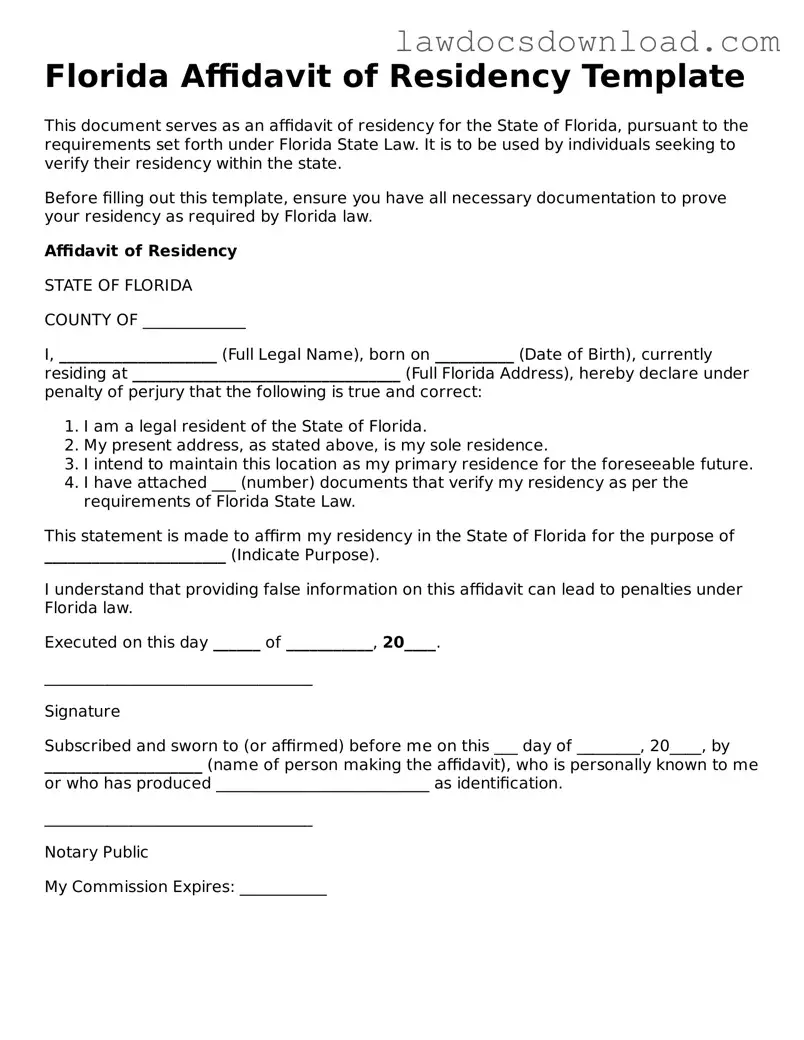Legal Florida Affidavit of Residency Form
The Florida Affidavit of Residency form is a legal document used to verify a person's place of residence within the state. This affidavit is often required for situations like enrolling a child in school or applying for certain types of state benefits. Without this form, residents may face difficulties in accessing essential services and rights.
Launch Affidavit of Residency Editor Here

Legal Florida Affidavit of Residency Form
Launch Affidavit of Residency Editor Here

Launch Affidavit of Residency Editor Here
or
Free Affidavit of Residency
Get this form done in minutes
Complete your Affidavit of Residency online and download the final PDF.